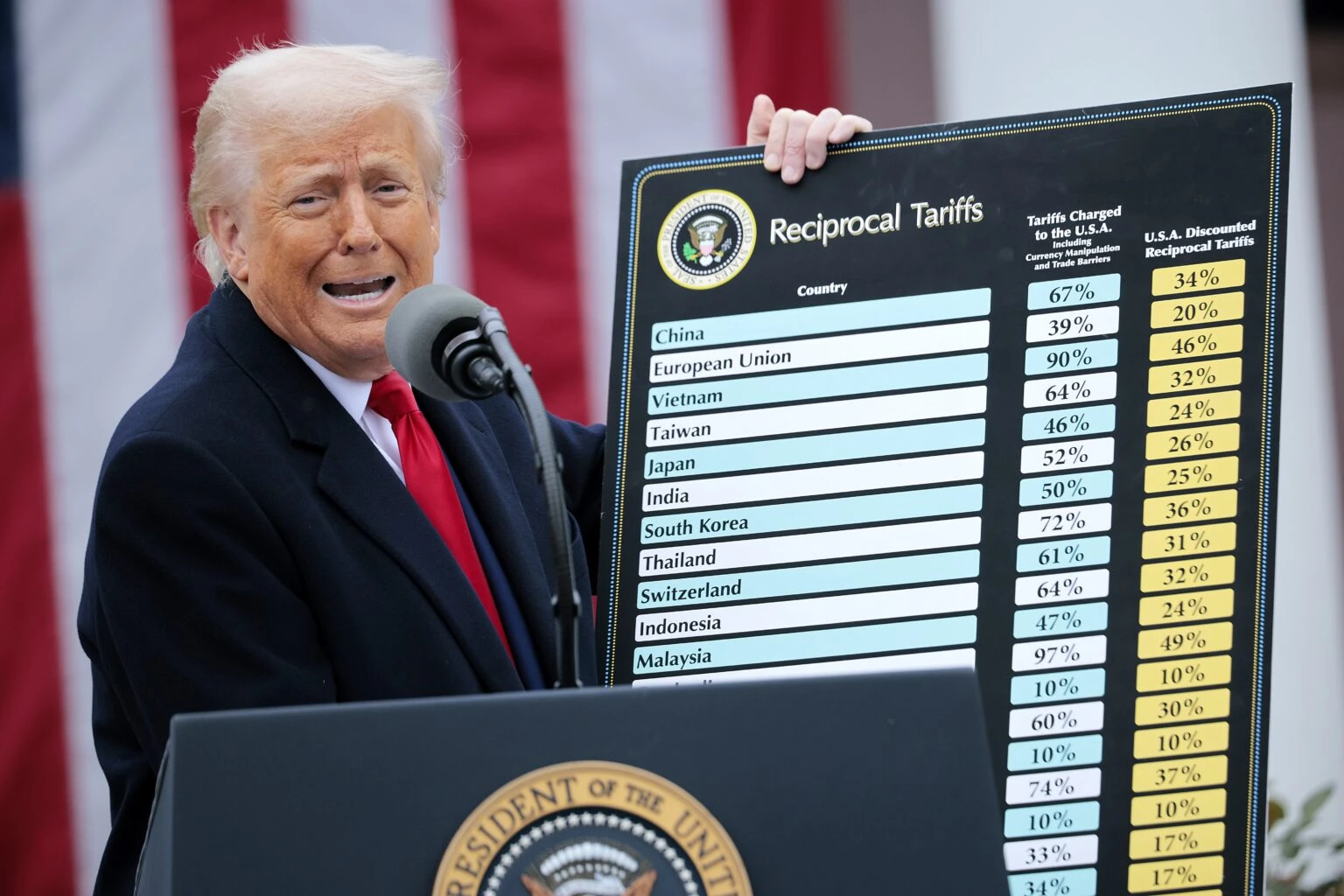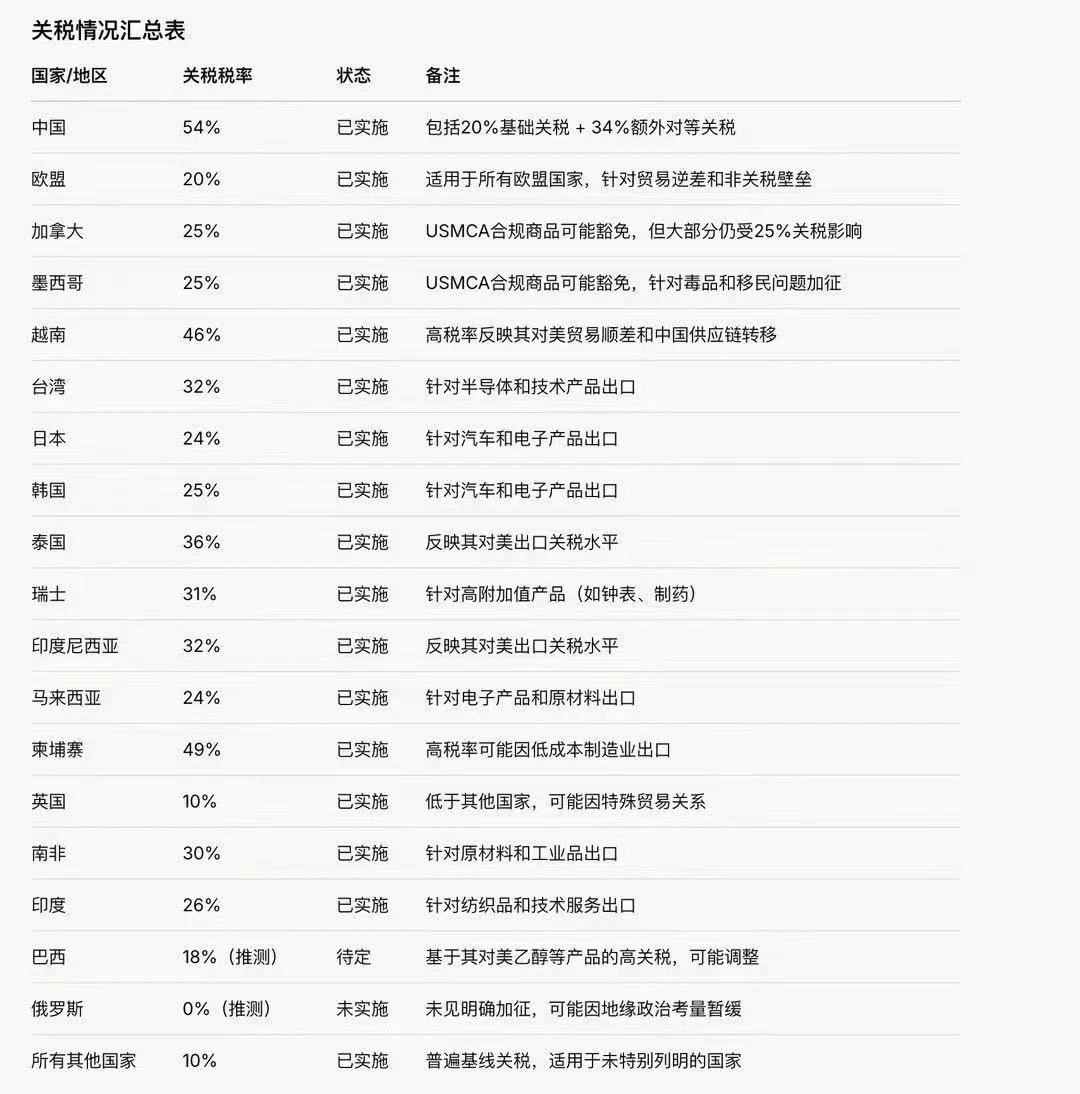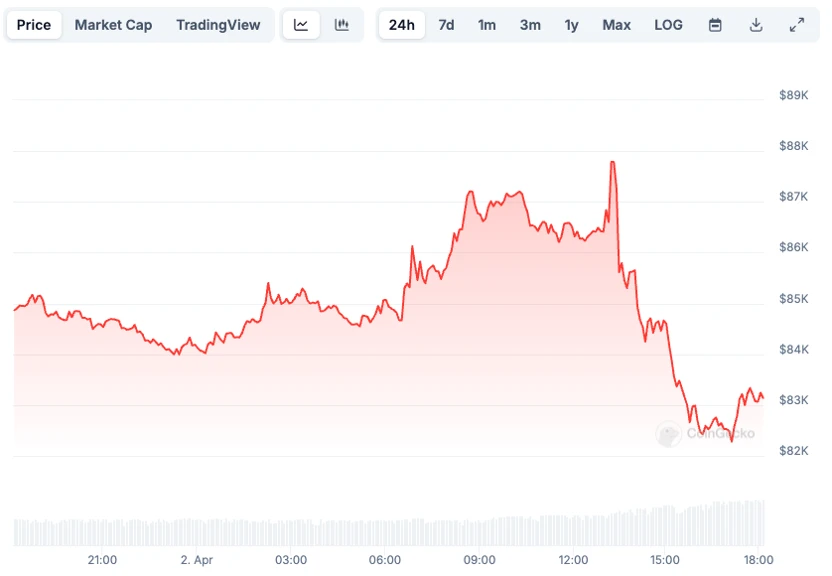Original | Odaily Planet Daily ( @OdailyChina )
Author: jk

On April 2, local time, US President Trump officially announced at the White House that a 10% minimum base tariff would be imposed on the vast majority of global imports, and that retaliatory tariffs of a higher proportion would be imposed on dozens of countries and regions. This decision marks a major shift in US trade policy and also indicates that a global trade war that may escalate has officially begun.
In his speech, Trump said: For decades, our country has been plundered and trampled upon, both by friends and adversaries. Now, the United States must fight back. He emphasized that the move is aimed at countering what he called asymmetric trade practices and non-monetary barriers and will create more jobs in the domestic manufacturing industry in the United States.
According to the White House document, this round of tariffs will be implemented in two stages: the 10% base rate will take effect on April 5, and the higher equivalent rate will be officially implemented on April 9. Specific country-specific tariffs include: 54% for China (previously 20%), 46% for Vietnam, 49% for Cambodia, 36% for Thailand, 32% for Indonesia, 30% for South Africa, 31% for Switzerland, 10% for the United Kingdom, 25% for South Korea, 24% for Japan, 20% for EU member states, and 10% for Singapore and Brazil.

One chart summarizes all the tariff rates the United States imposes on various countries
Bitcoin falls to as low as $82,500
Trumps move triggered a violent shock in the global capital market: the three major U.S. stock index futures plummeted after the market, with the Dow Jones Industrial Average futures plummeting by 1,007 points (a drop of 2.3%), the SP 500 futures falling by 3.4%, and the Nasdaq 100 futures plummeting by 4.2%. According to CNBC, multinational companies and retailers that rely on imported products were the most affected. Nike and Apples stock prices both fell by about 7% after the market. The technology sector was generally under pressure, with Nvidia falling by 4.5% and Tesla falling by 6%.
Although the market had expected it, the 10% tax rate (general tax rate) finally announced by Trump was lower than the 15% to 20% previously estimated by some investors, which alleviated the panic to a certain extent and led to a short-term rise in some risky assets. Bitcoin once rose by more than $1,500, briefly reaching $88,000, but then fell back to around $82,500, a drop of more than 5%, and a 24-hour drop of 2.2%; ETH fell to a minimum of $1,781, a 24-hour drop of 3.5%.

Bitcoin 24-hour trend, source: Coingecko
Responses
After Trump announced the tariff policy, Canadian Prime Minister Carney responded quickly, saying that Canada will take countermeasures, and the specific details will be announced by the federal government on April 3. As one of the largest trading partners of the United States, Canada has previously been subject to a 25% tariff on a number of key commodities.
According to the BBC, Olu Sonola, head of US research at Fitch Ratings, pointed out that the tariff increase will push the average US import tax rate from 2.5% in 2024 to 22%, the highest level in more than 100 years. This will change the rules of the game, not only impacting the US economy, but also may cause many countries around the world to fall into recession. Sonola said that if these tariffs continue to be implemented, existing economic forecasts will be completely invalid.
The De Minimis tariff rule has been closed, and low-value cross-border parcels between China and Hong Kong will be affected
After announcing the tariff policy, Trump also signed an order to close the tariff exemption system commonly known as De Minimis. The system allows overseas packages worth less than $800 to enter the country tax-free. The US government said that the system has been widely used by merchants in mainland China and Hong Kong, not only affecting local retail, but also becoming a channel for drug ingredients such as fentanyl to enter the United States. The new rules will take effect on May 2.
Opposition voices emerge in Congress
Although Trump insisted that tariffs would be long-term beneficial to the United States, opposition voices have emerged within the Republican Party. The Senate passed a bill by 51 votes to 48 that day to end tariff measures on Canada. Although the House of Representatives has not yet expressed its position, the emergence of opposition voices indicates that Trumps radical trade policy is also facing challenges at home.
This comprehensive tariff adjustment not only puts pressure on the real economy, but also has a substantial impact on global market confidence. External economists are generally concerned that this policy may push up inflation, increase pressure on the global supply chain, and further squeeze the spending space of ordinary households. Stephen Milan, chairman of the National Economic Council, said in an interview with Fox Business Channel: We recognize that this will cause short-term pain, but in the long run, it will be beneficial to the United States.









